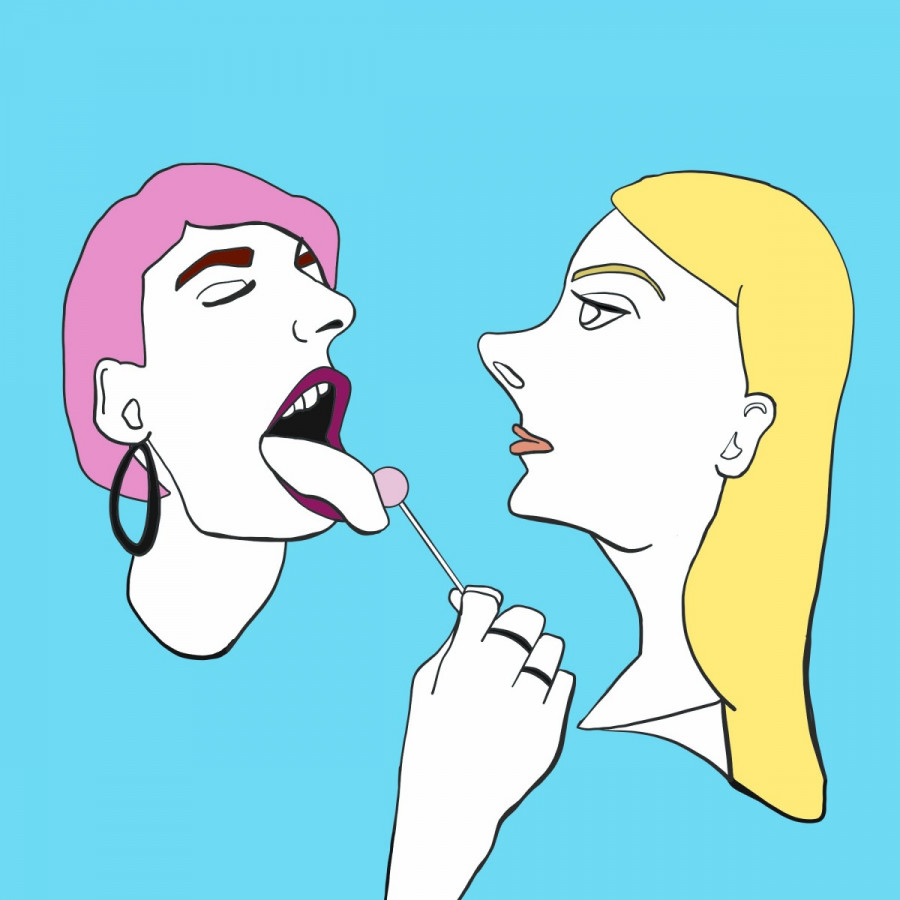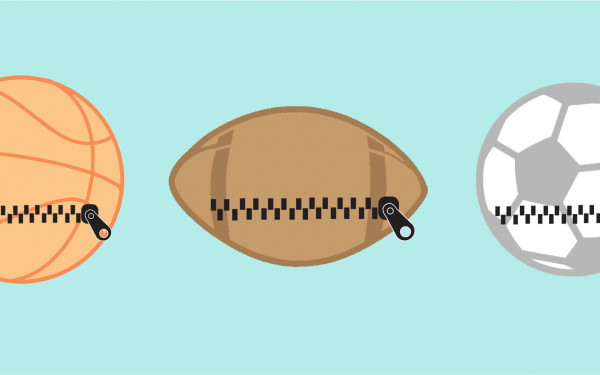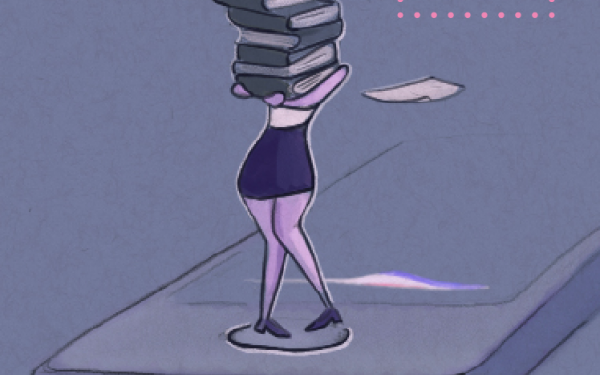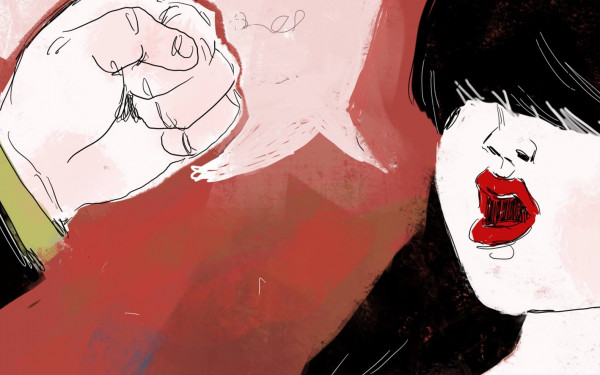Re-examining the Good Versus Bad Girl Binary
A Personal Response to the Dichotomization of Women’s Behaviour
I was born in 1985, which makes me an “old” millennial by most standards.
That means that I’m old enough to remember what life was like before Facebook, text messaging, the Kardashians, and the unforgettable “ding” of ICQ.
I remember what receiving a primary and secondary school education—as a young girl and adolescent—looked like spanning the years 1990 to 2002. The height of the “promoting women in STEM” era. The time of grunge, Girl Power, and the aggressive This Is Your Brain on Drugs public service announcements (Rachael Leigh Cook and a frying pan, anyone?)
Perhaps most memorable from that era was the enthusiastic promotion of the idea that women can absolutely do it all, have it all, and that we are equal to men on all levels. You GO Girl! A man’s world? Bah—it’s just as much your world as theirs…
Politically, economically, socially—and with respect to sexual freedoms—we have the same rights as men. No more, no less.
It was a world that held great promise.
Call me naïve, but I actually believed them. I trusted that these declarations were true since their espousers seemed utterly convinced themselves. I also assumed that equal rights would translate to equal treatment.
As a result, upon graduating from high school I was on a high, totally pumped. My community had revved me up, similar to how coaches get athletes together in the locker room for the pregame huddle, instigating a super-psyched state so that they’re “on” come game time.
I traversed my late teens and early twenties with my best foot forward and an excited, perma-grin on my face. I was unabashedly earnest and did not think that expressing myself confidently—intellectually, socially, and sexually—would land me any kind of trouble.
Then, around 21 or 22 years old, it dawned on me that something was terribly wrong. There was an insidiously sexist, inegalitarian current that flowed through my peer networks, family relationships, and the downtown McGill campus where I was completing an undergraduate degree in psychology. It even seeped into my love life.
This current became particularly charged when I, or other women around me, challenged a gender hierarchy that has privileged men since the dawn of the Neolithic Revolution, circa 8000 BCE. One that stipulates that men are the seduction initiators—the predators—and women, the prey.
The system is hypocritical because, despite its theoretical support of sexual freedoms and daily bombardment of sexualized female images, it dictates that good girls don’t have casual sex, they’re not particularly adept at flirting. And channeling your inner Samantha Jones is just plain wrong. We had flipped the script, and they—our parents, peers and romantic prospects—didn’t like it.
It started to become painfully obvious that, in matters of sexuality and intimacy, ours is a society that doesn’t hold men and women to the same standards. To make matters worse, women’s bodies are relentlessly policed and critiqued, objectified and sexualized. Mine certainly has been.
Derogatory language is hurled at women with startling velocity, with the aim of degrading, controlling and punishing them. Not least, sexual double standards, workplace sexual harassment and gender violence abound.
No one had prepared me for this type of world.
This Is Now: Splitting Us in Two
By my late twenties, I had no more illusions surrounding the state of equality. Nevertheless, I still did not have the words to describe what I, and the women around me, were experiencing. When I discovered the term “good versus bad girl binary” in the Rewire.News article “Pop Music’s ‘Good Girls’ Complex,” it suddenly all clicked.
The good versus bad girl binary designates women as either chaste, pure, innocuous and sweet, or seductive, promiscuous, feisty, and sour. “Good” women are attractive but not particularly sexy and are excellent wife and mother material. In contrast, “bad” girls are sexually charged and attractive, and thereby not “wifey” material. A woman can be either a Madonna or a whore, but nothing in between.
It had not previously dawned on me that a significant source of my angst, feelings of helplessness, and disillusionment with the world was largely because of patriarchy and its knack for bringing out the worst in people. Call it ironic, but I found solace in discovering this binary, as ugly as it is, because it resonated with my lived experiences. It helped me understand why I often felt so split-up inside; how could I be so many different things all at once?
The binary is dangerous for many reasons. For one, it prescribes rigid expectations for how females and males should think, experience emotion, and behave. This limits the full expression of our true selves and our complexity as human beings. It’s dangerous because it further complicates intimate relationships—it’s hard for reciprocity and unconditional love to flourish in a dichotomized world.
These are the boxes that they have tried, since our infancy, to keep us in.
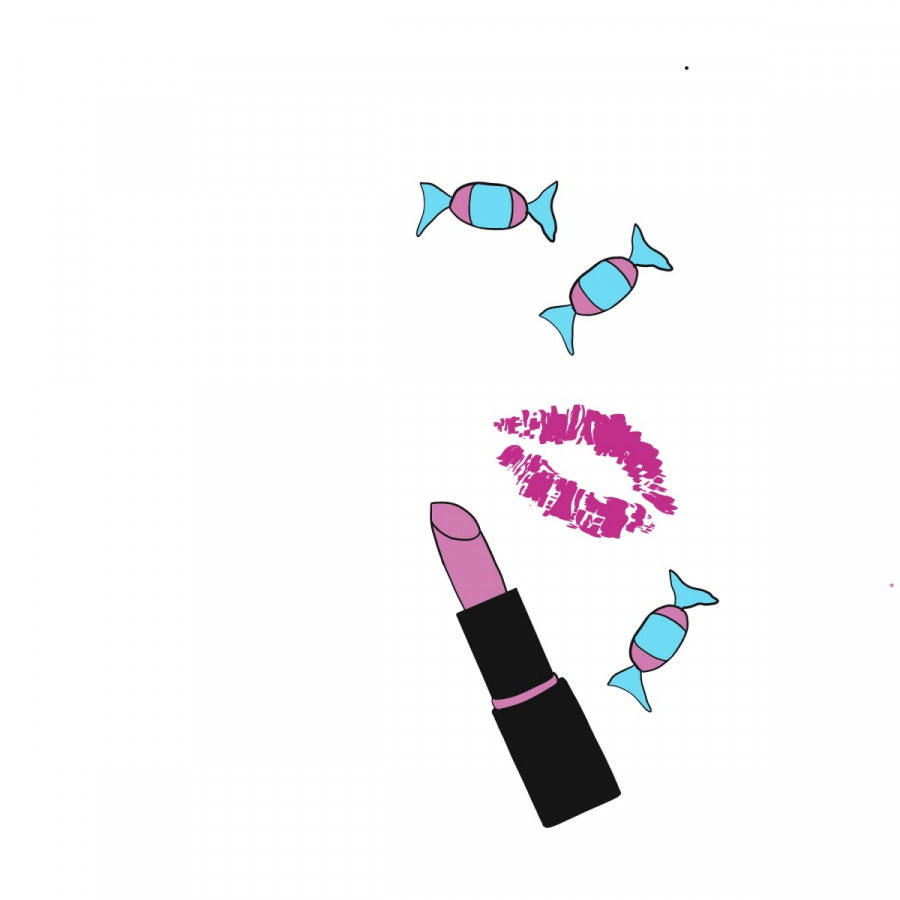
Why Are You Oppressing Me?
Feminist scholars argue the binary, also dubbed the Madonna-whore dichotomy, exists to reinforce and maintain the patriarchy. It oppresses women by providing society with a foolproof framework for tearing us apart. It’s a political manoeuvre that instigates women to turn on each other instead of their oppressors. It cripples us psychologically so that we’re either too scared or too tired to challenge the status quo. Nothing scares the primary beneficiaries of the conventional gender hierarchy more than losing power.
Founder of the online shop La Douzaine, artist, and new mother Nadège Roscoe-Rumjahn would agree, but believes that the tendency to oppress and polarize goes beyond the realm of gender politics. Rather, she views it as part of a more systemic, power-mongering tendency in humans.
“This is also how caste and class systems happen: You find something to oppress people with. [This is similar] to how the rich get richer. The system is set up to make sure that the rich stay rich. […] Whatever the system or whatever the hierarchy is, ruling institutions will find ways to set up the rules for the highest level of people to keep winning. The system is rigged,” said Roscoe-Rumjahn.
When seen from this vantage point, we begin to understand how behaviours, thoughts and attitudes that disrupt the patriarchal status quo might be viewed as threatening and therefore “bad.”
Being told that your existence is threatening is quite flattering when you come to think about it: Humans tend to oppress what they fear or don’t understand, or when they’re confronted by something powerful. We don’t invest time and resources into oppressing what doesn’t bother us. With so little time and much to do, why would we bother?
Despite decades of feminist activism, an allegedly successful sexual revolution, and the proliferation of equality rhetoric, the binary lives on in 2019, with dangerous implications for the mental health and wellbeing of women and men.
But in what ways does the binary hurt us and which factors contribute to its persistence?
The binary lives on because we unconsciously continue to believe that our ultimate worth lies in what we choose to do—or not do—with our bodies, from a sexual and reproductive standpoint.
Why the Binary Hurts
Because the binary has become so ingrained in our collective unconscious, backlash against women who exert sexual agency remains all too common. But how did we get here? For one, patriarchy (like, in some cases, religion) forwards a very narrow code for how to live the good life. But because the patriarchy wanted to guarantee its survival, it had to be based in a belief system that is both marketable and timeless.
Nothing is more timeless in Judeo-Christian society than the fear of transgressing.
Supported by iconic, dichotomized symbols such as the pure Virgin Mary versus the impure, sexually-charged Eve, the patriarchal code of conduct forwards the view that our moral worth as women is first and foremost defined by what we decide to do—and not to do—with our bodies. Thus, anybody who goes against this risks social punishment.
These ideas are similarly echoed by Jessica Valenti in The Purity Myth: How America’s Obsession With Virginity Is Hurting Young Women, “While boys are taught that the things that make them men—good men—are universally accepted ethical ideals, women are led to believe that our moral compass lies somewhere between our legs.” When seen from this perspective, the foundation for the double standard becomes thinkable.
What I find to be particularly tragic is when sexually vibrant, confident and bold young women are judged by their fellow sisters. I remember many instances in my twenties following dates when friends would excitedly, half-judgingly ask: “Did you sleep with him yet?”
And although I could never prove it, I knew that they were somehow, somewhere, keeping score. Common, yet unsolicited advice would usually follow, such as: Don’t sleep with him on the first date… or the second or even third! Make him earn it, otherwise he’ll think you’re easy and lose interest.
It’s sad that the pinnacle of what makes me interesting and worthy of attention and respect starts and ends with my anatomy.
But why do women judge and slut-shame other women? The basis seems to lie in what is referred to as internalized misogyny, women’s projection of sexist and degrading ideas onto other women and even themselves. It is an ingrained hatred for women who dare to break the rules.
This is grounded in a socialization process ridden with sexual stereotypes and misinformation. Internalized misogyny convinces us that being a “good girl” is not just the right thing to do from a morality standpoint, but is also the key to many social rewards and benefits, such as snagging a high-status husband.
Within the context of sexuality and dating, what does this all mean? What’s the message that society is ultimately trying to convey to us? It means that good girls control their desire. They’re just the right dose of shy, don’t demonstrate sexual prowess, and don’t stimulate arousal with their appearance.
They never initiate the “hitting on” step of the courting process because this might make men feel insecure and unsure about what to do next. Basically, they know their place in the good ‘ole gender hierarchy. They don’t undermine the legitimacy of the gender status quo. And because they aren’t shit disturbers, that makes them angelic members of society. That makes them good.
The message is that women shouldn’t lust for sex like men do, and should not approach it with the same zeal. It’s not in our “nature.” But of course it’s in men’s nature, so the biological argument goes: to be hunters and have higher libidos—they can make babies up until the day they die, right?
In musical terms, men are permitted, even expected it seems, to approach intimacy and sex with fortissimo. But, for us women, we must be content with approaching sex with unobtrusive pianissimo.
Thoughts on the binary’s persistence
I’m angry that intransigent gendered sexualities and narrow boxes have served to erode the declarations of equality I was promised as an adolescent. They gnaw away at my potential to be the powerful, multi-dimensional creature I know I was born to be. They do so because psychological exhaustion is a key weapon in the patriarchal arsenal. You need strength to challenge, to push back, to reach for the stars.
So, why can’t it just go away?
For one, the dichotomy persists because it’s hard to undo structures and belief systems that are 10,000 years in the making. Old habits die hard, especially because we have internalized our own oppression and objectification.
The result is the tendency to view ourselves as objects that need to look and act a certain way to obtain social approbation, complete with life partner and two and half offspring. The binary lives on because we unconsciously continue to believe that our ultimate worth lies in what we choose to do—or not do—with our bodies, from a sexual and reproductive standpoint.
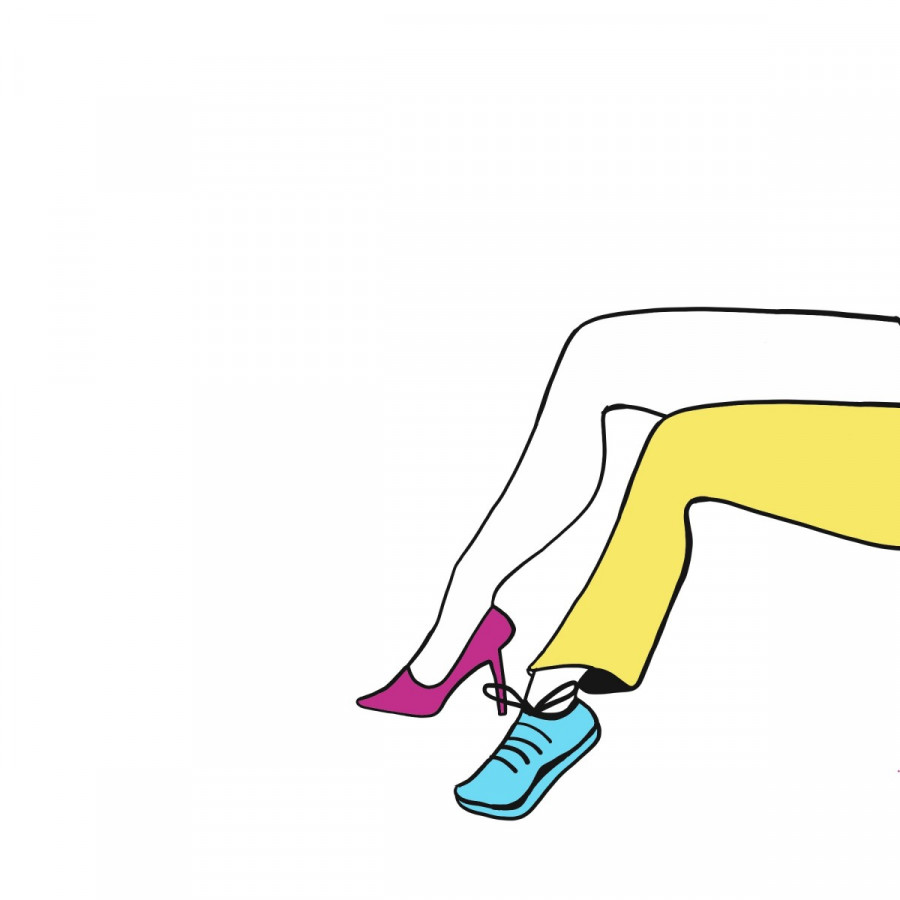
The fact that monotheistic religions thrive off dichotomous ways of thinking and have buttressed the patriarchal agenda has certainly not helped matters. “The binary persists because we are incapable of seeing women as the complex, multidimensional, often contradictory humans that we all are,” said gender rights advocate and freelance writer Toula Drimonis.
Drimonis noted that some established religions can approach women’s sexuality like it is something that must be controlled or reined in. She continued, “That spills out into everything else, right? No matter where you come from or what your background is.” Amen.
Dating apps like Tinder also help keep the binary alive, likely through the reinforcement of traditional heteronormative courting and mating behaviours. In fact, there’s research currently being done on this subject at Concordia.
Chaim Kuhnreich, a doctoral candidate in marketing at the John Molson School of Business uses theories from evolutionary psychology to shed light on app-based mating behaviours. His preliminary research on Tinder has revealed that men and women “signal” socially desirable traits in their profile pictures and that there are marked gender differences.
In a 2017 article that he penned for The Conversation, Kuhnreich discusses how men are much more likely than women to exhibit resource and affluence symbols in their pictures, such as a nice car or fancy vacations. Nothing shocking there.
Women, on the other hand, are much more likely to signal benevolence and virtue in their profile photos, traits that are desired by men. And why would that be? Kuhnreich points out that, “Men want to know that their offspring will be taken care of, and that they can trust that they will actually be investing in their own offspring and not someone else’s because of infidelity.”
Enter good girl, stage right.
Symbols of “goodness” include pictures of babies and altruistic activities such as volunteering or good ‘ol fashioned charity work. Interestingly, these photos are often supported by statements like “no hookups,” as if to signal that they are not that kind of girl, the “bad” girl.
Plus ça change, plus c’est pareil.
The binary persists because women excel at self-censorship. We’ve been socialized to be peacekeepers and tireless givers of “the benefit of the doubt.”
Coupled with lingering shame about our bodies and sexual experiences, this leads to the fact that fewer important conversations are being had, and limiting populist activism (among other things). But there’s a large price to pay for not rocking the boat. If we don’t fight, we don’t advance and the status quo remains.
We also can’t do it alone—we need the buy-in and support of boys and men. The binary hurts them too, and this is increasingly being documented. From Tel-Aviv University to the University of Michigan, researchers are uncovering that male endorsement of the binary and gender role conformity leads to lower relationship satisfaction (including sexual satisfaction) for the men themselves.
But, we need to be realistic. If we don’t take the first step, men are not going to rise up and volunteer to fight on our behalf—they have enough on their plate. The upside is that male allies are alive and well (I know many personally) and would be open to mobilize should we decide to kick the binary to the curb with unprecedented force.
Anxiety over being judged for exposing the extent of our disillusionment, our rage against the machine and—perhaps most delicate of all— a vulnerable part of self also factors in here. I understand and empathize that many women are fearful of standing out, of getting “punished” socially.
I’ve thought about this myself as well—if I’m vocal about the binary, if I openly fight it, what will people think of me? If I share my story, including private information regarding my romantic and sexual experiences, my scars and my disdain, what will my community think of me?
On the days when those thoughts flood my existence, I consciously tell them to bug off. Penning this article means that I am fighting the tendency to self-censor. Doing so has been incredibly cathartic.
Please don’t assume that I’ve always been this candid. After years of hard, introspective work, I’ve been able to shrink my ego down to a level where I can expose myself without fear of judgement or reprisal getting in the way.
As a result, I’ve entered a mental space where the impact of sticks and stones is dampened to a bearable enough level that I have the strength to not self-censor, even if I’m going to feel a slight sting here and there.
All in all, I am extremely grateful to all those people and experiences—both exquisite and traumatic—that allowed me to develop the requisite resilience and wherewithal to dare to be the change that I want to see in the world.
Who do you dare to be?

